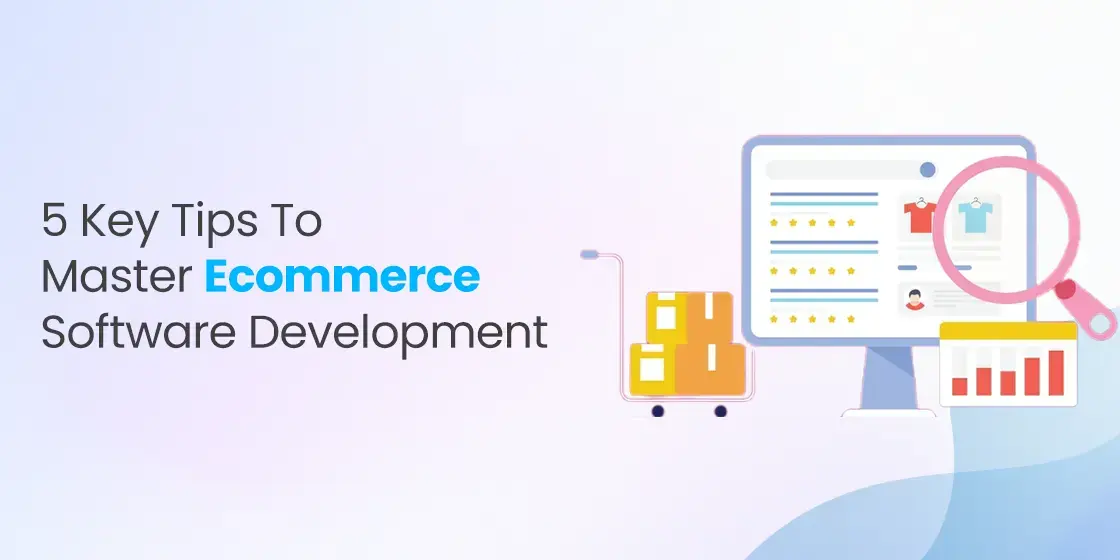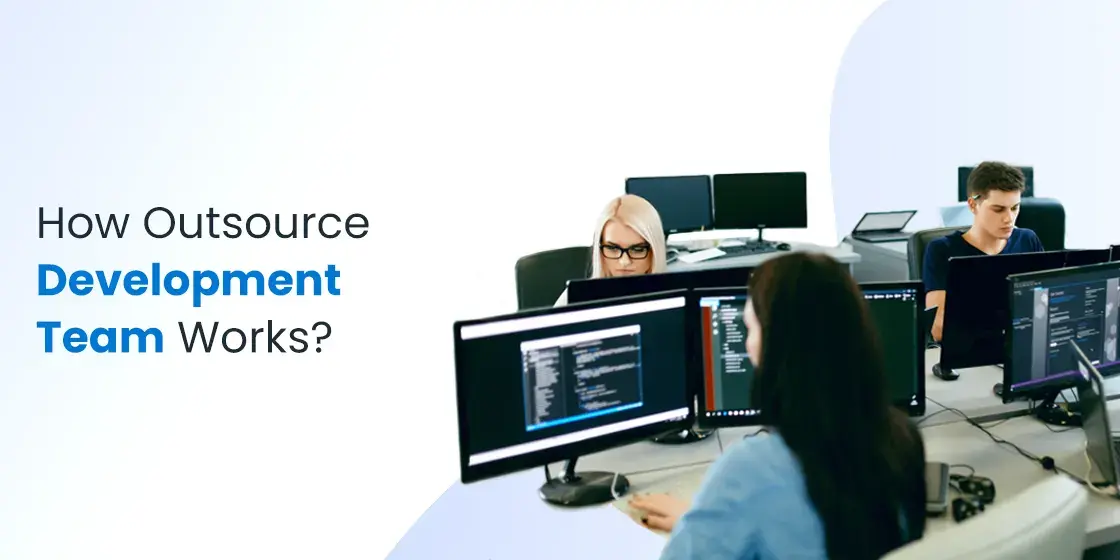Table of Content
Best Tips You Need to Learn for Ecommerce Software Development
The ecommerce industry has experienced extraordinary growth over the past few decades, transforming the way businesses operate and consumers shop. From its humble beginnings, when digital storefronts like Amazon and eBay first entered the market, the industry has rapidly evolved, becoming a significant force in the global economy. The rise of these platforms has not only reshaped the retail landscape but also set the stage for an explosion of online stores across various niches, contributing to the continued expansion of ecommerce worldwide.
Today, online stores of all sizes, whether large corporations or small startups, are heavily reliant on advanced software systems to manage and streamline their online sales operations. These systems are crucial in handling a wide range of functions, from inventory management and order processing to payment gateways and customer relationship management. In an industry as competitive as ecommerce, companies must stay ahead of technological trends to maintain efficiency, ensure smooth customer experiences, and enhance profitability.
This growing need for reliable, scalable, and feature-rich solutions has made ecommerce software development services indispensable. These services help businesses build, customize, and maintain robust software platforms tailored to their specific requirements. If you also want to know how to build a system that can take your ecommerce business to the heights of success, read this article in detail. It will enlist some useful tips that will help you to develop quality systems as per the latest trends.
What is an Ecommerce Software?

Ecommerce software refers to a suite of digital tools designed to facilitate and manage online sales transactions. It includes a wide range of features that help businesses operate efficiently in the digital marketplace, such as product catalog management, shopping cart functionality, secure payment processing, and more others. Ecommerce software can be customized to meet the specific needs of businesses, enabling them to offer a smooth shopping experience, manage orders effectively, and handle back-end processes like shipping and logistics.
This software can take many forms, from out-of-the-box solutions for small businesses to enterprise-level platforms that offer extensive customization and scalability for large retailers. It may also integrate with other systems like marketing automation tools, accounting software, or analytics platforms to provide a comprehensive approach to managing an online store. Whether hosted on the cloud or installed on-site, ecommerce software is essential for businesses looking to optimize their online sales operations, and stay competitive in an ever-changing digital landscape.
Ecommerce Software Development: Key Tips to Remember

Developing an ecommerce software isn’t an easy job. It requires in-depth technical knowledge, as well as understanding of the market for which the online store is being built. As a beginner, you can follow the core tips given below to master ecommerce software development. Let’s take a look at them below.
Define Project Goals
Ecommerce software comes with a wide array of features, making it essential for businesses to clearly define their goals and objectives before selecting or developing a system. The first step is to assess what you want to achieve with the new platform. To make an informed decision, you should carefully consider the specific needs of your business and how the software can address them. Factors such as scalability are important to ensure the system can grow alongside your business, while security features are crucial to protect sensitive customer data and build trust.
Furthermore, businesses should also evaluate the availability of third-party integrations when selecting ecommerce software. Integrations with tools such as payment processors, shipping carriers, marketing platforms, and CRM systems can significantly enhance the functionality of your ecommerce platform. These integrations allow for a more seamless workflow across various aspects of the business. By prioritizing these core features and aligning them with your business goals, you can ensure that the ecommerce software you choose will meet your needs perfectly.
Look into the Market
Partner with our software development specialists to pioneer custom solutions that drive your business forward.
Request Your Solution
Conducting thorough market research is a critical step in identifying the most suitable ecommerce solutions for your business. By exploring existing platforms and software options, you can gain insight into the various features that are available. This process allows you to assess whether any off-the-shelf solutions can effectively meet your business needs or if you require a custom-built platform to address unique challenges. Researching the market also helps you understand the strengths and weaknesses of different solutions, enabling you to make an informed decision more confidently.
Understanding the landscape of ecommerce software options is essential before moving forward with any development process. Knowing what’s currently available can guide your decision on whether to adapt an existing solution or invest in custom development. It’s important to evaluate the scalability, ease of integration, and overall adaptability of the available software in relation to your long-term goals. This knowledge will not only help you optimize your ecommerce strategy but also ensure that your chosen solution aligns with the latest UAE tech trends and future growth requirements.
Choose Development Technologies
Selecting the right development technologies for ecommerce software development is a crucial decision to make. When choosing technologies, it’s essential to consider the specific needs of your business. Start by evaluating technologies that support the features you need, such as secure payment processing, mobile responsiveness, fast page load times, and a user-friendly interface. It’s also important to assess whether the chosen technologies align with your team’s skill set, as well as the ability to hire or outsource developers familiar with the tools.
Additionally, you should prioritize technologies that offer scalability and flexibility to support your business’s growth. For instance, consider best coding languages and frameworks that are well established and widely used in ecommerce development. These technologies provide robust support, frequent updates, and a large developer community, which ensures long-term stability and the ability to address evolving business requirements. By selecting the right technologies, you can create a highly efficient, secure, and scalable ecommerce platform as per the industry requirements.
Focus on Interactive UX
When developing your online store, it’s essential to prioritize creating a seamless and intuitive user experience. A well-designed ecommerce platform should make it easy for customers to navigate the site, find the products they are looking for, and complete their purchases with minimal effort. This includes having a clear and organized layout, intuitive search functionality, and a streamlined checkout process. A user-friendly interface, ensures that shoppers have a pleasant experience, which can increase the likelihood of repeat visits and higher sales.
In addition to the overall layout and ease of navigation, you should also consider the mobile experience. The ecommerce software should be fully responsive, ensuring that the site adjusts well to different screen sizes and devices. Moreover, incorporating personalization features can enhance the shopping experience and make it more engaging for users. By focusing on these elements, you’ll be able to create a positive experience that encourages customers to return to your store more oftenly.
Test the Store
Before deploying ecommerce software into the production environment, it is crucial to conduct thorough testing to ensure the platform functions as intended and meets all performance and security requirements. Testing should cover a wide range of scenarios, including functionality, usability, compatibility, performance, and security. This ensures that all features, such as product browsing, shopping cart management, payment processing, and order fulfillment, work flawlessly across different devices and browsers.
To ensure that the system is fully optimized, make sure you allocate adequate time and resources for this testing phase. It’s essential to perform both manual and automated testing to identify any potential issues under various conditions. In addition to functionality testing, security testing is crucial to ensure that sensitive customer data, such as credit card information and personal details, is protected against cyber threats. By investing time and resources into comprehensive testing, you can mitigate many issues that often arises post launching.
Frequently Asked Questions
| What is an ecommerce software? Ecommerce software is a digital platform designed to manage and facilitate online sales. It streamlines processes such as inventory management, payment processing, and order fulfillment for businesses operating online stores. |
| What are the benefits of using ecommerce software? Ecommerce software enhances business efficiency by automating tasks like inventory management, order processing, and payment handling. It also provides a seamless shopping experience for customers, boosting sales, customer satisfaction, and scalability for future growth. |
| What is the cost to build an ecommerce software? The cost of ecommerce software development is influenced by factors such as the complexity of features, customization requirements, and the choice between pre-built platforms or custom solutions. |
Final Words
That concludes our entire article in which we have discussed various tips that could help you to build a quality ecommerce system. Building an efficient online store is important because it plays a major role in making a brand successful in the market. By following the tips defined above, you can build a proper plan for ecommerce software development covering all the essential points. It is not just beneficial for the beginners, but also for the seasoned professionals who are looking to build a quality store as per the industry standards.

Empower your digital journey with StruqtIO - Your dedicated partner for cutting-edge custom software development, innovation, and digital transformative solutions. Harness the power of technology to elevate your business and redefine your digital landscape today.


